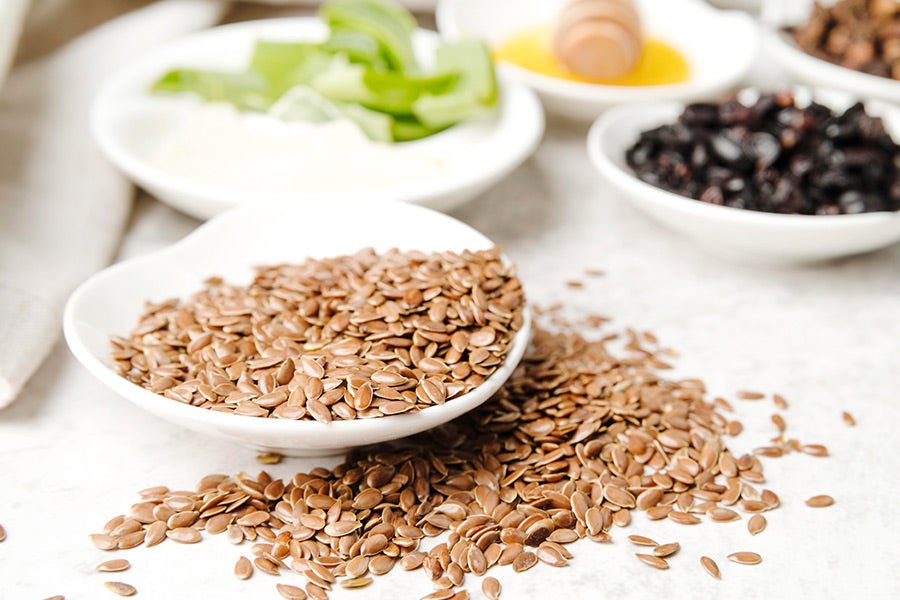What Are the Vitamin E Fertility Benefits and How Vitamin C Fertility Works?

For couples trying to conceive, vitamin E fertility and vitamin C fertility are often highlighted for their role in reproductive health. These powerful antioxidants help protect cells, improve sperm and egg quality, and can support overall fertility. Here’s a closer look at how vitamin E for fertility and vitamin C for fertility work and why they may be beneficial on your fertility journey [1].
How Vitamin E Supports Fertility
Vitamin E has significant benefits for fertility, especially due to its antioxidant properties that protect reproductive cells from oxidative stress.
In men, vitamin E for male infertility plays an important role. Studies show that Vitamin E can boost sperm motility, helping sperm move more effectively to reach the egg. Vitamin E for sperm health is especially crucial because this vitamin helps protect sperm cells from environmental damage. This also contributes to increased sperm count and quality. Furthermore, vitamin E and infertility research suggests that Vitamin E may improve overall reproductive health in men. Many couples share vitamin E fertility success stories, reporting improved sperm health and higher chances of conception after introducing Vitamin E into their routine [2].
For women, vitamin E and fertility benefits include supporting uterine health by helping to thicken the uterine lining, which is vital for implantation. Vitamin E also assists with hormone balance, a key factor for regular ovulation and menstrual cycles, which boosts the chances of conception [3].
Top Tip: Foods rich in Vitamin E, such as sunflower seeds, almonds, and spinach, can be easily added to meals to naturally support reproductive health.
How Vitamin C Supports Fertility
Vitamin C is another essential nutrient for fertility. It’s a powerful antioxidant that helps protect reproductive cells from oxidative damage, which can impact fertility.
In men, vitamin C and fertility studies indicate that Vitamin C, when paired with Vitamin E, can further improve sperm vitamin E levels, aiding sperm health. This combination is shown to protect sperm DNA and enhance sperm quality and count. In fact, vitamin E and sperm health sees notable improvement when these two vitamins are combined, creating a stronger foundation for male fertility [4].
For women, vitamin C for fertility assists in hormone regulation by supporting the thyroid and adrenal glands, which helps maintain a balanced hormonal system. Stable hormone levels increase the chances of consistent ovulation, and healthier eggs improve the likelihood of conception [5].
Top Tip: Adding fruits like oranges, strawberries, and kiwi to your daily diet can help boost Vitamin C levels naturally, which supports overall fertility health.
How Much Vitamin E for Fertility?
If you’re wondering how much vitamin E for fertility is recommended, about 400 IU per day is often suggested. However, individual needs may vary, so it’s wise to consult with a healthcare provider to determine the best amount for you.
Top Tip: Pairing Vitamin E with healthy fats, such as avocado or olive oil, can help improve its absorption in the body.
Vitamin E and Vitamin C: A Powerful Combination for Fertility
When used together, vitamin E and fertility benefits are strengthened by the effects of Vitamin C. These vitamins work together to protect reproductive cells from oxidative stress, a common factor in infertility issues for both men and women [6].
Together, they support DNA integrity in both sperm and eggs, improving overall reproductive health. Couples who have struggled to conceive often share vitamin E fertility success stories where using both vitamins contributed to positive fertility outcomes [7].
Top Tip: Consider a balanced diet or a supplement containing both Vitamin E and Vitamin C to get maximum fertility support.
Foods High in Vitamin E and Vitamin C for Fertility
Including foods rich in vitamin E for fertility and Vitamin C in your diet can naturally support reproductive health. Sunflower seeds, almonds, and leafy greens are excellent sources of Vitamin E, while citrus fruits, strawberries, and bell peppers are rich in Vitamin C. A diet that incorporates these foods daily can be a simple yet effective way to support fertility for both men and women [8].
Top Tip: A balanced diet with both Vitamins E and C provides steady antioxidant support, which can help keep reproductive cells healthy.
Other Nutrients Supporting Fertility
In addition to vitamin E fertility and vitamin C fertility, other nutrients like folic acid for male fertility, zinc, selenium, and CoQ10 are beneficial for fertility. Folic acid supports DNA synthesis, zinc aids hormone balance, selenium offers additional antioxidant support, and CoQ10 promotes cellular energy, which is particularly valuable for egg health, especially in women over 35 [9].
The Bottom Line
To summarize, vitamin E fertility and vitamin C fertility benefits are crucial for couples aiming to conceive. By protecting reproductive cells, promoting hormone balance, and improving sperm and egg quality, these vitamins can play a meaningful role in enhancing fertility health. Conceive Plus offers products that incorporate these essential nutrients, providing natural support to couples on their journey to parenthood [10].
FAQs
Can Vitamin E and Vitamin C improve fertility?
Yes, both vitamins protect reproductive cells, support sperm and egg quality, and help regulate hormones, all of which are beneficial for fertility.
How much Vitamin E should I take for fertility?
Generally, 400 IU daily is recommended, but it’s best to consult a healthcare provider to determine what’s right for you.
What foods contain Vitamin E and Vitamin C for fertility?
Sunflower seeds, almonds, and spinach are rich in Vitamin E, while citrus fruits, strawberries, and bell peppers are excellent sources of Vitamin C.
Can Vitamin C improve male fertility?
Yes, Vitamin C reduces oxidative damage in sperm, improving sperm quality and supporting reproductive health.
Should Vitamin E and Vitamin C be taken together for fertility?
Yes, taking these vitamins together enhances antioxidant protection, supporting healthy sperm and egg cells and potentially improving the chances of conception.
Citations
- Showell, M. G., Mackenzie-Proctor, R., Brown, J., Yazdani, A., Stankiewicz, M. T., & Hart, R. J. (2014). Antioxidants for male subfertility. The Cochrane database of systematic reviews. Available at: https://pubmed.ncbi.nlm.nih.gov/25504418/
- Kodama, H., Yamaguchi, R., Fukuda, J., Kasai, H., & Tanaka, T. (1997). Increased oxidative deoxyribonucleic acid damage in the spermatozoa of infertile male patients. Fertility and sterility. Available at: https://pubmed.ncbi.nlm.nih.gov/9314926/
- Ruder, E. H., Hartman, T. J., Blumberg, J., & Goldman, M. B. (2008). Oxidative stress and antioxidants: exposure and impact on female fertility. Human reproduction update. Available at: https://pubmed.ncbi.nlm.nih.gov/18535004/
- Greco, E., Iacobelli, M., Rienzi, L., Ubaldi, F., Ferrero, S., & Tesarik, J. (2005). Reduction of the incidence of sperm DNA fragmentation by oral antioxidant treatment. Journal of andrology. Available at: https://pubmed.ncbi.nlm.nih.gov/15867002/
- Lopes, S., Jurisicova, A., Sun, J. G., & Casper, R. F. (1998). Reactive oxygen species: potential cause for DNA fragmentation in human spermatozoa. Human reproduction (Oxford, England). Available at: https://pubmed.ncbi.nlm.nih.gov/9619544/
- Ruder, E. H., Hartman, T. J., & Goldman, M. B. (2009). Impact of oxidative stress on female fertility. Current opinion in obstetrics & gynecology. Available at: https://pmc.ncbi.nlm.nih.gov/articles/PMC2749720/
- Albert Salas-Huetos, Mònica Bulló, Jordi Salas-Salvadó, Dietary patterns, foods and nutrients in male fertility parameters and fecundability: a systematic review of observational studies, Human Reproduction Update. Available at: https://academic.oup.com/humupd/article/23/4/371/3065333
- Tremellen K. (2008). Oxidative stress and male infertility--a clinical perspective. Human reproduction update. Available at: https://pubmed.ncbi.nlm.nih.gov/18281241/
- Wong, W. Y., Merkus, H. M., Thomas, C. M., Menkveld, R., Zielhuis, G. A., & Steegers-Theunissen, R. P. (2002). Effects of folic acid and zinc sulfate on male factor subfertility: a double-blind, randomized, placebo-controlled trial. Fertility and sterility. Available at: https://pubmed.ncbi.nlm.nih.gov/11872201/
- Agarwal, A., Makker, K., & Sharma, R. (2008). Clinical relevance of oxidative stress in male factor infertility: an update. American journal of reproductive immunology. Available at: https://pubmed.ncbi.nlm.nih.gov/18154591/













